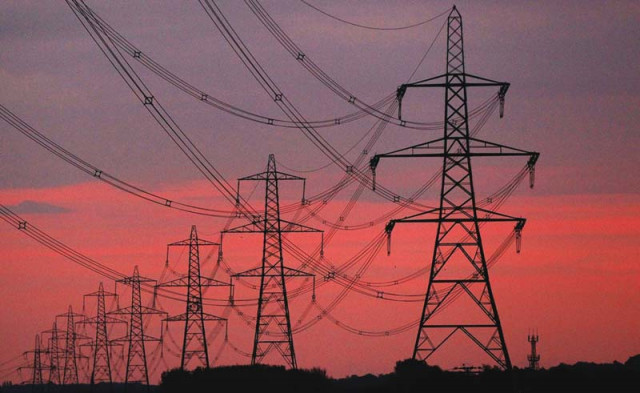For $300m, ADB promised new surcharges on electricity
Dar gives assurances he would implement charges after it was unable to privatise power distribution companies

PHOTO: REUTERS
Finance Minister Ishaq Dar’s letter to ADB President Takehiko Nakao of May 9 revealed that the government has promised to slap electricity surcharges, if it remained unable to privatise power distribution companies. The delay in determination of new electricity tariff will also be compensated by imposing yet another surcharge, according to Dar’s letter.
Chief Minister seeks ADB's help in energy sector
The finance minister had written the letter to give commitments in return of receiving $300 million for balance of payments support. The ADB subsequently approved the loan last month.
The government has already imposed a tariff equalisation surcharge and Neelum Jhelum surcharge on the electricity consumers, denying them benefits of the reduction in crude oil prices in the international market. However, still it could not eliminate circular debt, which has again resurged to over Rs400 billion due to inefficiencies.
High cost of doing business
Textile exporters are already complaining about the high cost of doing businesses due to unparalleled taxation and high energy cost.
The government’s right to impose surcharge has already been challenged in the courts, as the National Electric Power Regulatory Authority Act does not empower the federal government to impose these surcharges. As per requirement of the ADB loan agreement, the federal government had proposed amendments in the NEPRA Act to get clear powers to impose new surcharges.
However, the Lahore High Court suspended on Thursday a decision of the federal cabinet regarding amendment to the NEPRA Act. Chief Justice Syed Mansoor Ali Shah passed the order on a petition by Pakistan Tehreek-i-Insaf Secretary General Jahangir Tareen.
Changes required in Nepra Act
The application of surcharges starting from 2019 are expected to reduce the stock of circular debt from Rs375 billion to Rs240 billion in two years, and the combination of full cost-recovery tariff and surcharges could bring it down to Rs65 billion by the end of fiscal year 2021, wrote Ishaq Dar.
After its sheer failure to privatise power distribution companies under the $6.2 billion IMF programme, the government came up with a new plan to divest shares at the Pakistan Stock Exchange. Dar has assured both the IMF and the ADB that his government would divest the shares of Faisalabad, Islamabad and Gujranwala power distribution companies.
Now he has assured the ADB that in case of delay in Initial Public Offering/divestment plan, there will be a funding gap, which will increase cost arrears. “The funding gap can be eliminated by promulgation of surcharges” to raise finances equal to losses in privatization proceeds, Dar wrote to the ADB president.
The privatisation of the power sector was rolled back because of opposition from within the government.
The government informed the ADB that major causes of this continued accumulation of circular debt are ambiguity in legislation and delays in the privatisation of the DISCOs. In addition, various entities are challenging over 1,300 of NEPRA’s decisions, including those related to surcharges, in court.
The ADB report on recent $300 million loan for energy sector underscored that decisive reforms are needed to further reduce the gap between end-user and cost-recovery tariffs, streamline the sector’s legal and regulatory environment; and institutionalize information disclosure.
Finance Minister has also assured the ADB that the cost of lower recoveries of bills and high line losses will also be recovered from the consumers through surcharges. The discrepancies in tariff regime will also be passed on to the electricity consumers.
Energy reforms: ADB, Pakistan ink $300m agreement
The government also wants that electricity consumers should bear the brunt of its failure to timely pay the cost of power generation to the Independent Power Producers. The IPPs have filed appeals in the courts to invoke the sovereign guarantees.
Published in The Express Tribune, July 8th, 2017.
Like Business on Facebook, follow @TribuneBiz on Twitter to stay informed and join in the conversation.



















COMMENTS
Comments are moderated and generally will be posted if they are on-topic and not abusive.
For more information, please see our Comments FAQ